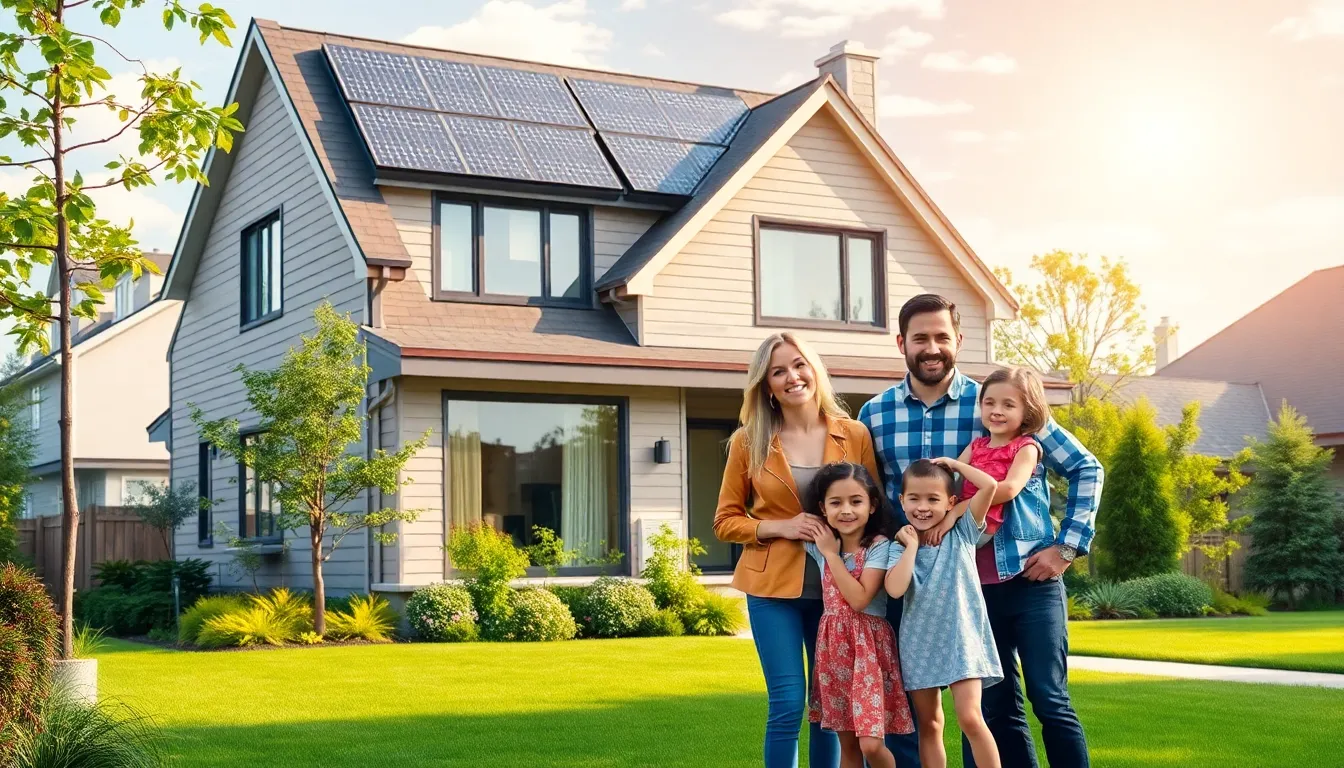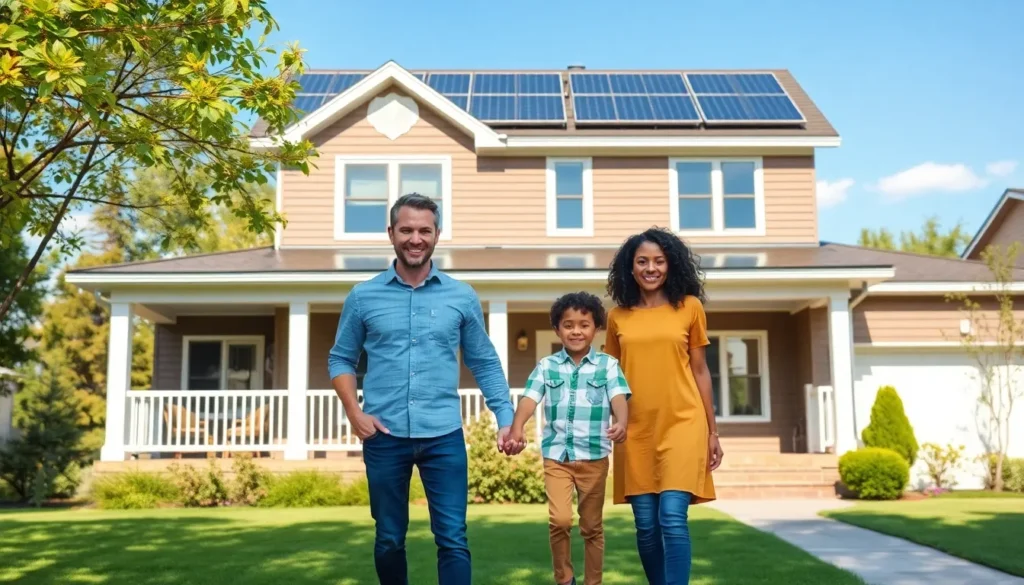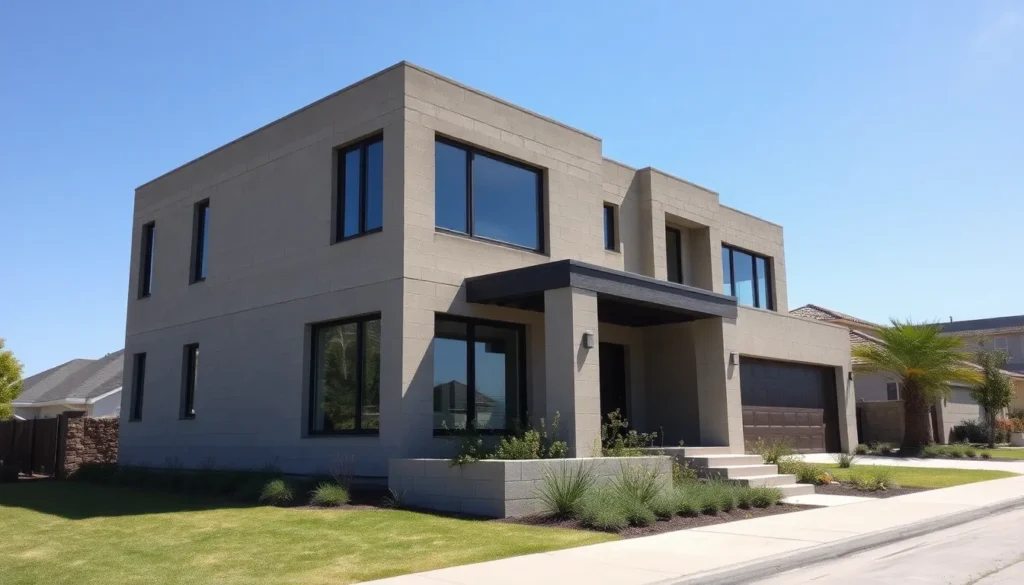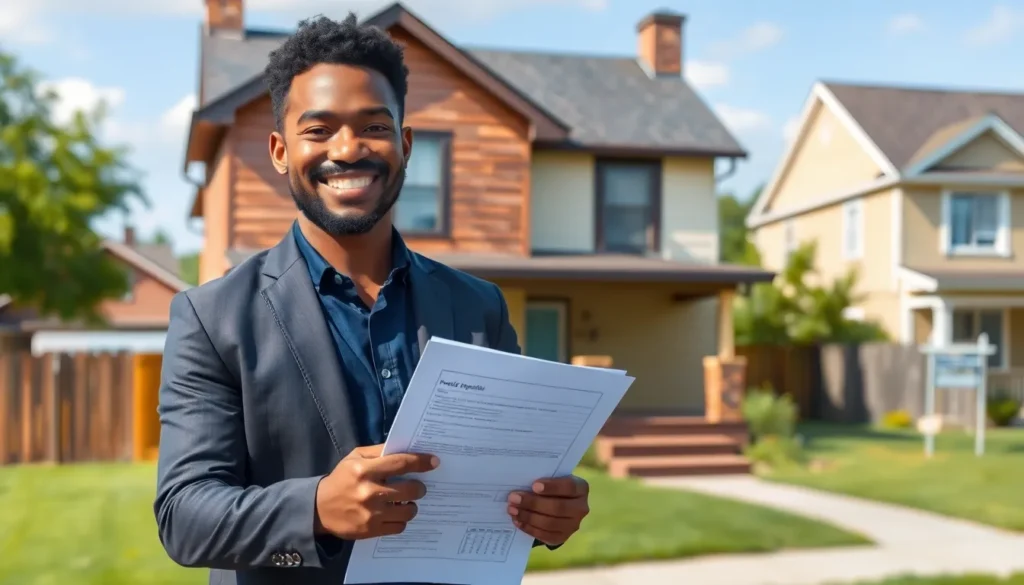In a world where energy bills can feel like a second mortgage, energy-efficient homes are the superheroes we didn’t know we needed. Imagine a home that not only keeps your bank account happy but also gives Mother Nature a high-five. With cutting-edge technology and eco-friendly designs, these homes are like a cozy hug for both you and the planet.
Table of Contents
ToggleWhat Are Energy Efficient Homes?
Energy-efficient homes minimize energy consumption while maximizing comfort and cost savings. These residences contribute to a sustainable future and appeal to environmentally conscious buyers.
Definition and Importance
Energy-efficient homes utilize technology and design to reduce energy usage. They often feature insulation, energy-efficient appliances, and smart systems. These homes play a vital role in reducing utility costs, enhancing home comfort, and decreasing environmental impact. The demand for energy-efficient homes continues to rise as buyers prioritize sustainability and financial savings. Investing in such properties offers long-term benefits for homeowners and the planet.
Key Features of Energy Efficient Homes
Energy-efficient homes incorporate various elements aimed at reducing energy consumption. Solar panels harness renewable energy while significantly cutting electricity costs. High-performance windows limit heat loss and improve indoor temperature stability. Energy-efficient heating and cooling systems optimize energy use, providing comfort without excessive expenditure. Smart home technology allows for real-time energy monitoring and management. These features collectively enhance the overall functionality and sustainability of residences, making them appealing for modern living.
Benefits of Energy Efficient Homes

Energy-efficient homes provide numerous advantages that benefit homeowners, the environment, and local communities. These homes offer cost savings, improved comfort, and enhanced air quality.
Cost Savings on Utilities
Lower energy bills result from energy-efficient features such as insulation and energy-efficient appliances. Homeowners enjoy significant cost savings over time due to reduced electricity and heating expenses. For instance, Energy Star appliances can save households about 30 percent on annual utility bills. According to the U.S. Department of Energy, energy-efficient homes can reduce overall energy consumption by up to 50 percent. This reduction leads to lower financial strain and allows homeowners to allocate funds to other priorities.
Increased Comfort and Air Quality
Energy-efficient homes enhance comfort levels through superior insulation and modern heating and cooling systems. Consistent indoor temperatures contribute to overall satisfaction. Furthermore, these homes often incorporate advanced ventilation systems, which improve indoor air quality. Better air quality leads to healthier living environments by reducing allergens and pollutants. Improved thermal comfort, along with superior air quality, fosters a more pleasant home experience, making energy-efficient homes a wise choice for families and individuals alike.
How to Find Energy Efficient Homes for Sale
Finding energy-efficient homes involves targeted strategies. Several effective approaches exist.
Online Real Estate Listings
Numerous online platforms feature extensive real estate listings, showcasing energy-efficient homes. Websites like Zillow, Realtor.com, and Redfin allow users to filter search results based on energy efficiency ratings. Users can examine details such as energy-saving features, certifications, and average utility costs. Key indicators include Energy Star certification and Green Building Council ratings. Many listings display energy-efficient appliances, high-performance windows, and solar panel installations. These platforms often include virtual tours, providing insights into home layout and features. Efficient navigation enhances user experience, leading to informed decisions.
Working with Real Estate Agents
Engaging a knowledgeable real estate agent simplifies the home-buying process. Experienced agents understand the local market and specialize in energy-efficient properties. Buyers benefit from their insights into specific features that enhance energy savings. Agents often have access to listings not yet available online, widening possibilities. Questions about energy audits, rebates, and financing options can be addressed effectively by these professionals. Networking with agents can lead to recommendations for reputable builders or developers with a focus on sustainability. Prioritizing communication with an agent ensures alignment with personal preferences and energy efficiency goals.
Factors to Consider When Buying
Considering several factors can guide buyers toward energy-efficient homes. Important aspects include energy efficiency ratings, certifications, location, and the neighborhood’s overall appeal.
Energy Efficiency Ratings and Certifications
Energy efficiency ratings and certifications significantly impact home value and performance. Homes with Energy Star certification meet strict energy efficiency guidelines set by the U.S. Environmental Protection Agency. Other labels, like LEED and HERS, indicate superior energy performance. Buyers benefit from these certifications as they often correlate with lower energy costs. It’s essential to review these ratings during property searches, as they provide insight into potential utility savings and environmental impact. Ensuring the home meets recognized standards offers peace of mind for homeowners committed to sustainability.
Location and Neighborhood Considerations
Location heavily influences the energy efficiency of a home. Proximity to public transportation can reduce reliance on vehicles, leading to lower emissions. Neighborhood walkability contributes to overall sustainability, encouraging healthier lifestyles. Areas with access to amenities like grocery stores and schools can enhance convenience for families. Additionally, understanding local climate patterns helps buyers choose homes with suitable energy-efficient features. Researching neighborhood trends can reveal property values that fluctuate with energy efficiency demand, making informed decisions imperative for eco-conscious buyers.
Energy-efficient homes represent a smart investment for those seeking comfort and sustainability. With their advanced features and technologies, these homes not only lower utility bills but also contribute to a healthier environment. As buyers increasingly prioritize energy efficiency, the market for these properties continues to grow.
By leveraging online resources and expert guidance, potential homeowners can navigate their options effectively. Understanding energy ratings and considering location are crucial steps in making informed choices. Ultimately, embracing energy-efficient living leads to long-term benefits for both individuals and the planet.













